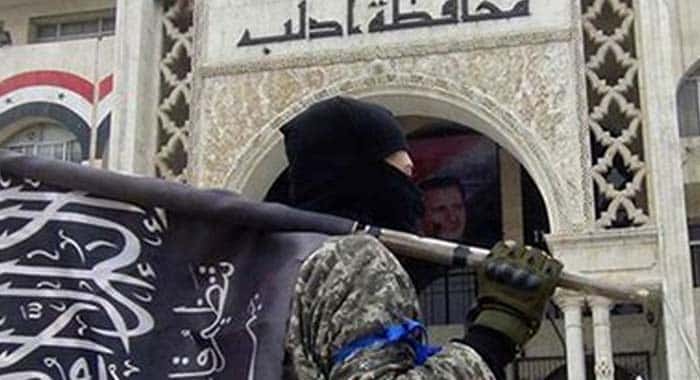The interim Syrian government under President Ahmad al Sharaa has formally incorporated the Turkistan Islamic Party (TIP)—a designated Al Qaeda-linked terrorist organization—into its national armed forces, raising profound international security concerns and directly defying repeated U.S. demands for the removal of foreign jihadist elements from Syria.
On May 18, Syria’s Defense Ministry announced the establishment of the 84th Division, a military unit largely composed of TIP fighters, primarily Uighur militants originating from Central Asia. This move institutionalizes the presence of a global terrorist group within Syria’s formal military structure, contradicting explicit U.S. directives issued as a precondition for lifting sanctions.
During a May 14 meeting in Damascus, U.S. President Donald Trump confronted interim President Sharaa—himself a U.S. and UN-designated terrorist and former leader of Syria’s Al Qaeda affiliate—with a clear ultimatum: remove all foreign terrorist fighters from Syria or face continued isolation. Sharaa has persistently stalled, justifying the continued presence of foreign jihadists by lauding their role in toppling the Assad regime.
This defiance came despite a formal March 2025 letter from Washington demanding the expulsion of these groups. Instead, Sharaa’s government elevated six foreign militants to the rank of brigadier general last December, including Abdulaziz Dawud Hudaberdi—known as Zahid—the TIP’s senior commander in Syria. Zahid has commanded TIP operations since 2012, orchestrating hundreds of offensives against Russian, Iranian, and Syrian regime targets across Aleppo, Idlib, and Latakia.
Defense Minister Murhaf Abu Qasra’s declaration that all major armed factions have been absorbed by the Ministry of Defense signals a strategic move to consolidate terrorist groups under official Syrian command. Analysts warn that other Al Qaeda-linked groups such as Katibat Imam al Bukhari, Mujahidin Ghuroba Division, Islamic Jihad Union, and Ajnad al Kavkaz—already deeply entwined with TIP and Al Qaeda—may soon be integrated similarly, further legitimizing terrorist actors within state institutions.
The TIP, rooted in the quest to establish an Islamic emirate in China’s Xinjiang region and Central Asia, operates as a vital node within Al Qaeda’s global jihadist network. Led by Abdul Haq al Turkistani, a senior Al Qaeda executive council member and Specially Designated Global Terrorist, the TIP maintains operational bases across Afghanistan, Pakistan, and Syria.
Turkistani, a veteran jihadi who once oversaw Al Qaeda-sponsored training camps in Afghanistan’s Tora Bora Mountains, remains the primary architect of TIP’s Syrian battlefield strategy. His role as director of the group’s Syrian operations was reaffirmed earlier this year by the United Nations Analytical Support and Sanctions Monitoring Team, indicating no expected change despite the group’s official assimilation into Syrian state forces.
The formal incorporation of thousands of TIP militants into Syria’s military apparatus represents a dangerous escalation that undermines global counterterrorism efforts. It elevates an internationally sanctioned terrorist group to legitimate status within a sovereign government’s armed forces, threatening regional stability and complicating international diplomatic efforts to resolve the Syrian conflict.
The United States and its allies continue to monitor developments closely and underscore the imperative for Damascus to cease sheltering terrorist groups that jeopardize peace and security both regionally and worldwide.





